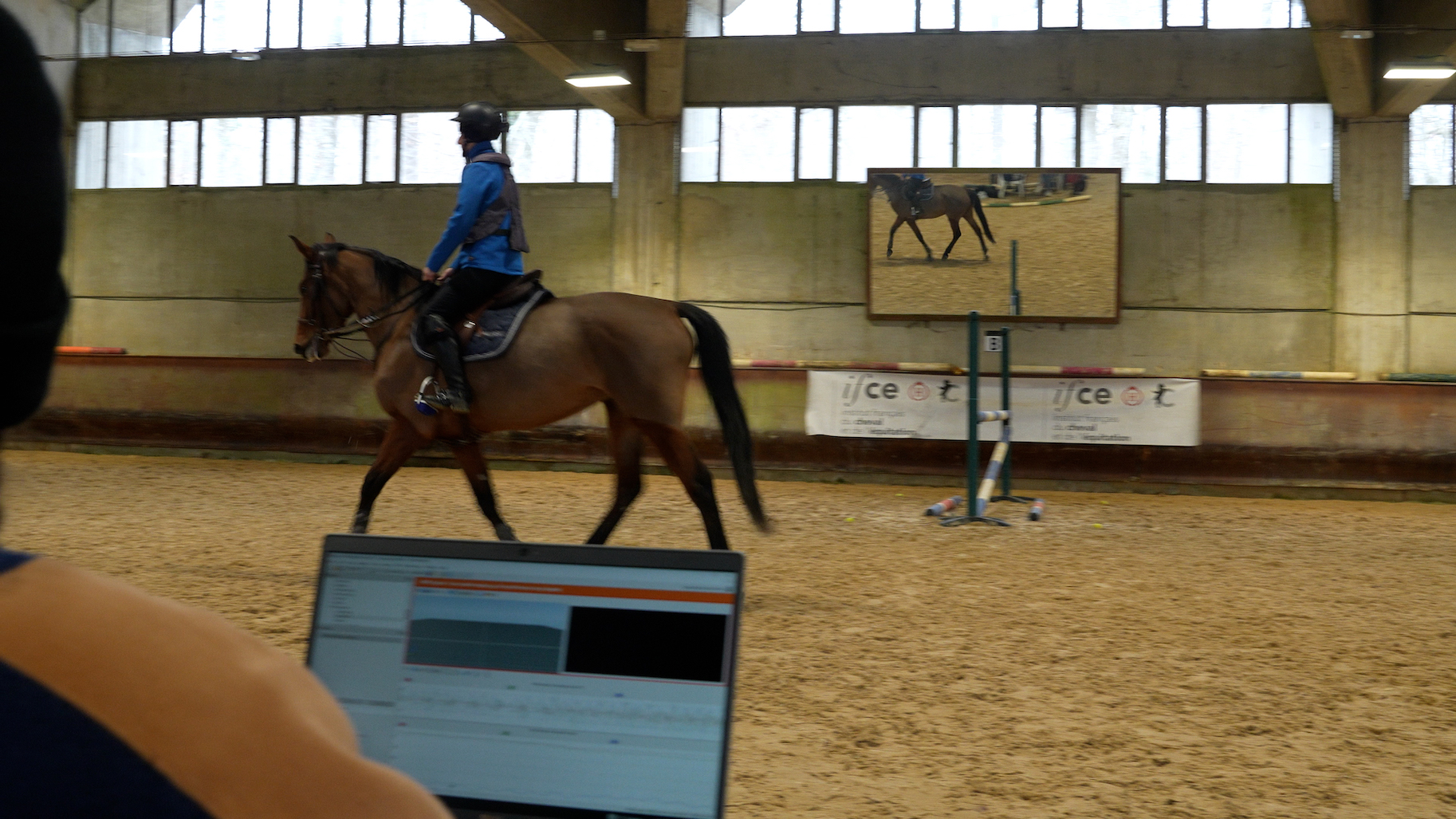Data in sport: what challenges for research?
Date:
Changed on 02/10/2024

Heart rate, body temperature, oxygen saturation, speed, duration and intensity of sessions, type of exercise, rest periods, players' positions on the pitch, movements of the opposing team, medical history or even altitude and air quality - the data collected in sport today covers a wide range of aspects, from athletic performance to health, tactics and the environment.
Behind all this information, gathered using portable sensors, GPS tracking systems, video analysis systems or questionnaires filled in by athletes, lie a number of issues, touching on several key aspects of sporting practice, whatever the discipline or level.
By providing information on the physical condition, technical and tactical abilities and state of health of athletes, the analysis of this data enables coaches to design personalised training programmes that maximise the potential of each athlete. It will also make it possible to prevent potential injuries by identifying signs of over-training or muscular imbalance. Finally, by analysing information from the athletes' performances, their strengths and weaknesses can be identified, enabling them to develop appropriate competition strategies and maximise their chances of success on the field.
Despite these many advantages, the use of data in sport presents a number of limitations and challenges, which scientists and sports stakeholders have to deal with in their projects and collaborations.
The first challenge relates to data collection methods and technologies. How can we ensure that the data collected is accurate, complete and consistent, particularly when different data sources are used or when the conditions under which data is collected vary? Incorrect or incomplete data can lead to incorrect analyses and inappropriate decisions.
Verbatim
Several project teams at Inria are working on developing algorithms that can take advantage of low-cost sensors, which are difficult to use in the field but which, with artificial intelligence, are capable of bringing out important and relevant information.
Auteur
Poste
Head of the MimeTIC project team at the Inria Centre at the University of Rennes
In swimming, for example, the aim is to be able to use algorithms to define an athlete's swimming pace and speed based on nothing more than a sensor in a swimming costume or swimming cap.
Another research challenge in data collection and analysis is the development of computer vision, so that competitions, matches or opponents can be filmed and reliable, accurate statistics can be derived.
Verbatim
The big difficulty in sport is that certain shots are sometimes played to 100 milliseconds, to within a few degrees of an angle. And today's conventional computer vision techniques fail to achieve this level of precision.
Auteur
Poste
Head of the MimeTIC project team at the Inria Centre at the University of Rennes
Data analysis can also be subject to bias and incorrect interpretation, particularly when data samples are limited. How, on the one hand, can relevant data be extracted for those involved in sport and, on the other, how can they interact with and interpret this data? A great deal of research is currently focusing on the visualisation of complex data to enable everyone to make the most of this information.
Last but not least, the protection of privacy is unsurprisingly a major challenge for the sector. When sensitive data is collected, such as biometric, medical or location information, it is crucial to ensure that it is used ethically and responsibly. Personal data protection regulations govern the processing of data collected in this context. This means respecting athletes' rights to privacy and autonomy, obtaining their informed consent for the collection and use of their data, and putting in place robust security measures to protect this data against unauthorised access or misuse.
‘All our experiments are governed by ethical debates, with a very strict and rigorous aspect to our data management plan, i.e. how we store and reference the data. For example, we are going to store in different files data relating to the anthropometric characteristics of our participants, i.e. their weight and height, which can ultimately be identifying data", explains Anne-Hélène Ollivier, HDR lecturer (Biomechanics) at the STAPS UFR at the University of Rennes 2 and member of the VirtUS project team.
Last but not least, the human element remains a central element that should not be overlooked when analysing data. Factors such as player motivation, injuries and team dynamics can have a significant impact on the outcome of a match, but they are difficult to quantify and measure. So it's important to strike a balance between using data and human judgement to make informed decisions.